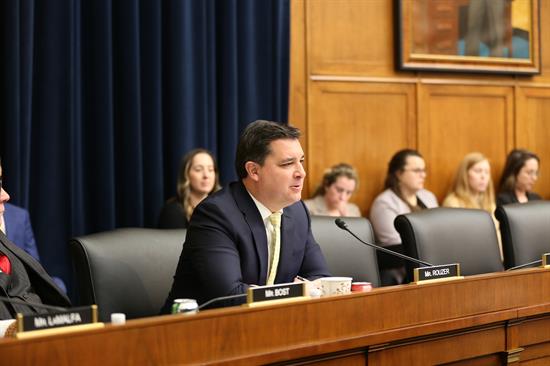Press Releases
Rouzer Supports Resolution To Repeal the Dept. of Labor's H-2A Adverse Effects Wage Rate Rule
Washington,
April 27, 2023
WASHINGTON, DC - Congressman David Rouzer (NC-07) joined Congressman Ralph Norman (SC-05) and Chairman of the House Committee on Agriculture, Glenn "GT" Thompson (PA-15) in introducing a resolution of disapproval under the Congressional Review Act (CRA) to oppose the Department of Labor’s finalized H-2A Adverse Effect Wage Rates rule. Senator Tim Scott (R-SC) and Senator Ted Budd (R-NC) are leading a companion effort in the Senate. This resolution has the support of 54 co-sponsors in the House of Representatives and 26 co-sponsors in the Senate. "The Biden Administration's new H-2A rule is yet another example of a flawed regulatory agenda that creates barriers to U.S. agriculture production and causes needless uncertainty for our farm families," said Rep. Rouzer. "Congress must overturn this burdensome regulation, which is creating confusion and increasing costs for both producers and consumers at the grocery store. Repealing this rule will help to ensure our agriculture community can continue producing the world’s most abundant and affordable food supply." Background |


